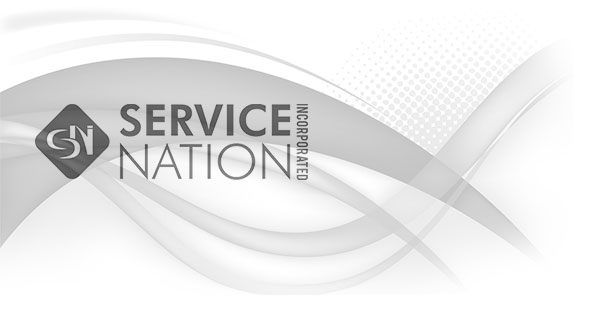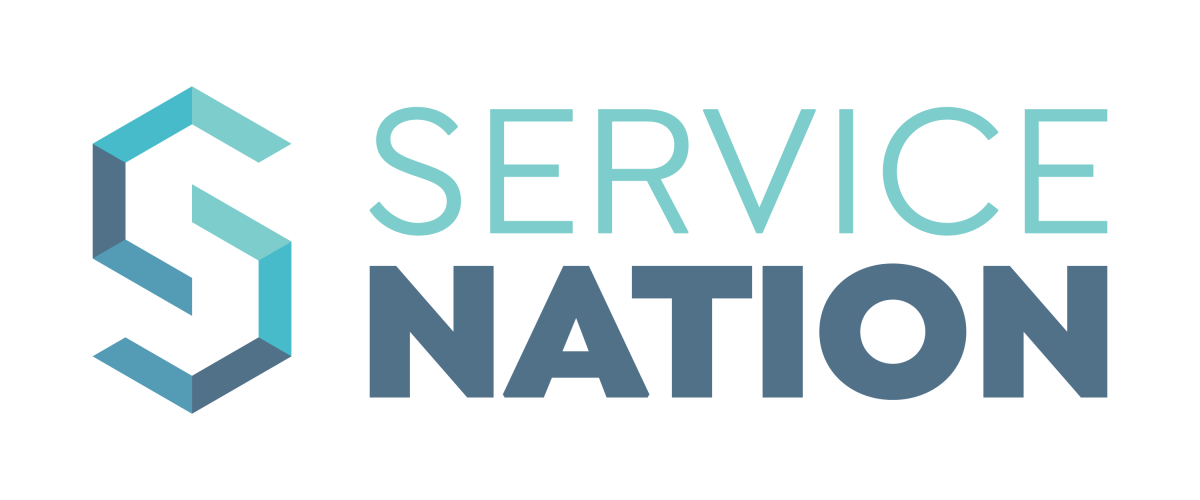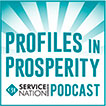In the second episode, we talk about the value of self-development CPIs, charity programs, the impact of those and we hear about Kelly’s commandments. Those are Kelly’s rules for his life and business. It’s great information. I’m tremendously grateful to Kelly for taking the time to do this. Here is the first of the podcasts, welcome Kelly Schols. It is great to have you with us. Thanks for agreeing to be on this podcast. There is a ton of stuff that we could talk about, in your business, but where I’d like to start off is at the very beginning. Tell me about when and why you got into the plumbing business.
David Heimer: And then how did you get into CPI your current plumbing company?
Kelly Schols: Well, my girlfriend’s dad had a partner and in 1986, he last sold out of the company he was in, went to this other one. I continued to work for my girlfriend’s dad for about another six months and then I moved to Southern California. I was living down there and then my ex-partner who had sold out and went to the other company, he started calling me and asking me to come back up and help him with his new company. I wasn’t quite sure what I wanted to do. I turned him down, but he was pretty persistent and he called me every month for two and a half years until I finally came up, met with him and saw what was going on. And at that time he offered for me to become a partner with him. So in 1990, I moved back to Washington, bought in with him, and became a partner. And then in 2002, he retired and I bought him out at that time.
David Heimer: So how old were you when you became a partner when you moved back?
Kelly Schols: When I moved back, I was 24 years old. So I lived in Southern California from the time I was 21 to 24. Moved back here when I was 24 and became a partner with him, bought him out in 2001.
David Heimer: And so in 2001, about how big was your business and what was the general makeup of the business? What were you focused on?
Kelly Schols: We were about 85%, 90% new construction. And we were doing about 3 million a year at the time, residential, light commercial, radiant. But like I said, we were about 85% new construction at the time.
David Heimer: So how is that different? Where is your business today?
Kelly Schols: Today we’re about 97% service and repair. We do very little new construction. We’ll do close to 5 million this year and pretty much give up the new construction.
David Heimer: So you have a really interesting story about moving from new construction, into residential service. Can you tell us about that?
Kelly Schols: After I bought my ex-partner out in 2002 and when I bought him out was right after September 11th. So we had a little challenge right away. So one thing I did is I dove into personal development. My brother’s been very successful in the automobile industry and I’ve always turned to him as kind of a mentor when I bought my ex-partner out when the recession of September 11th happened and I didn’t know how to get through it. So talking to my brother, he said, well, the thing to do is work on yourself so I did. I jumped in and started doing personal development and it helped tremendously. It helped me become a better leader and get some more focus on how to get through the recession, everything. So, we were getting along pretty good. By 2008, we were doing about 6 million a year, 85%, 90% new construction. And a lot of that actually was residential tract homes and custom homes. And I have two other partners in the business, minority partners that helped me run the business. And we have monthly meetings and just talk about where we want the company to go, what we’re doing, and things. And we would talk about what was going on with the residential market and one of my partners, his wife, is a banker, and she’d come home and tell him about the loans that they were writing and look at the loans that were being written.
And then also all the track homes and custom homes and stuff we were doing. We just kept thinking, this cannot keep going. I mean, you’re seeing prices of homes, double people can’t afford them. And we kept talking about it and we said, you know, something’s going to happen. We don’t know what, but something’s going to happen and we don’t want to be stuck in it. So, at that time, we made a conscious choice to completely rebrand the company. That’s when we joined Service Roundtable and Service Nation Alliance and decided that we were going to focus more on service and repair and light commercial and get out of the residential new construction and that was in 2008. And by the time the recession hit us up here, because it’s specific to the Northwest, we’re always a little behind everybody else in the country. So it really didn’t hit us until 2010. And by then we had already really dove into the service and repair with the rebranding and everything. So, it helped us tremendously to get through all that.
David Heimer: And so you at that point basically transitioned out of new construction into residential service. And where are you today then? How large of a company are you?
Kelly Schols: We’ll do about 6 million this year and in service and repair, full-blown plumbing, drain, HVAC, and very little new construction.
David Heimer: So one of the things you talked about was your service agreement program, and you said that some of the success that you’ve enjoyed can be attributed to that. How did you implement the service agreement program?
Kelly Schols: Well, that’s been kind of an evolving thing. When we got into service and repair, we were selling what we called service agreements. And then we were at a Service Roundtable meeting in Vegas and we met Ed O’Connell and Paul Guzman, who at the time Ed owned, what was it, O’Connell?
David Heimer: O’Connell’s Plumbing. With the tagline, ‘the only plumbing company highly recommended by my mother’.
Kelly Schols: And their service agreement program, they called the club membership and it was the LC club. So, Brad and I were down at a Roundtable meeting and we met Ed and Paul and we talked to them about it and we were maybe selling 10 to 20 service agreements a month, not much. And the guys, they were selling them for the discount. It wasn’t for anything else. And after talking to Paul and Ed, we saw that number one, they called it a membership instead of a service agreement. And then just the way they presented it as a LC club member and how they did stuff, we came back and we started brainstorming and Brad wanted to name it the Kelly’s club.
I was against that to begin with, but we changed from service agreement, the membership and went over it with the techs and we started selling quite a few more. I mean, we were up to 40, 50 a month, but we still weren’t satisfied. And Brad kept hounding me. We got to call it Kelly’s club. So, finally I said, okay, fine we’ll do it. So we did, we changed it to Kelly’s club. We sat down with our technicians and went over with them on what they believed in and what they didn’t because at the time they were still selling it more for the discounts than anything. But when we sat down we’re able to show them the value that the client was getting for it and what it would cost to go out and do that, without running a membership, just to charge a customer how much it was, then the techs really started believing in it and really selling them. And now we’re selling anywhere between 100 to 120 a month, every month.
David Heimer: That’s awesome. So, you mentioned branding earlier, talked about the efforts you went into for rebranding and building your brand. What differentiates your brand from the others?
Kelly Scholes: Quite a few things that differentiate us. At another Service Roundtable meeting, listening to Steve Miles talk about being open seven days a week and treating the business more like a retailer than a contractor. So, we went to seven days a week. We do service 24 hours a day, but we’re one of the only contractors in our area where people can literally get a hold of us on Saturday, Sunday. We run calls, we don’t charge extra holidays, we’re available. And we’re probably the only contractor in our area that does that. But we do a lot of training, a lot of consultants and trainers through Service Roundtable. We’ve used Kenny Chapman and matter of fact, Kenny and I have become really good friends and business partners. And in another plumbing business, we’ve used a lot of Joe Cunningham stuff. I’ve met Joe and we’ve gone to some of his training sessions. We’ve used Charlie Greer’s. So, we do a lot of training. We train five days a week, whether it be technical, personal development, customer service, sales, everything. So we’re really into developing our people, not only personally, but professionally as well.
David Heimer: Big investment in the employees.
Kelly Scholes: Very big. That really helped me a lot, developing personally myself and the people that have helped me. So, I really want to give that back. Another thing I’ve done is become a personal financial one-on-one coach and I do that free for any, my employees. I will sit down with them and their spouse and help them financially, whether it be paying off debt, saving for retirement, saving to buy a home, estate planning, whatever they want, and I’ll do that for free for any of my employees and their families.
David Heimer: You told me, once before, and I thought this was really unique that you started teaching a financial series for your employees. So would you tell us first, what prompted you to do that? What was the need that you saw and then tell us how it went?
Kelly Scholes: Well, one of the days of our training is personal development and we’re always looking for content and Brad is one of my partners and actually the general manager of the company. He and I, we talk about everything and we’re talking about training one day and what we’re going to do and he tells me about Dave Ramsey and I’ve never followed Dave Ramsey before. But I’ve always been very smart with my money and very good with it. My ex partner really helped me and mentored me in that area of my life. But we were sitting there talking about Dave Ramsey because Brad has always been a disciple of his and a lot of what Dave teaches is what I was taught from my ex partner.
So I checked into it and found out that Dave has what’s called Financial Peace University and most of that is done through churches. And a lot of it is just volunteer stuff that they do to help people with their finances. So I got a hold of the Ramsey organization and found out they have a program called Core Financial Wellness, which is the same as their Financial Peace University, but it’s not religious based and it’s more for businesses. So I became a facilitator to be able to teach that to all my employees. So I took that course and then I started teaching Core Financial Wellness. At the time we had 14 employees sign up for it when they did, I can’t remember the exact debt, but I believe the debt with those employees was like $186,000 without, including any mortgages. The course is an eight week course, which I drew it out to a 16 week course instead of cramming it all in. Because it was like two hours each week. So I just did an hour each week. And in 16 weeks, the debt was dropped by $40,000.
David Heimer: Wow.
Kelly Scholes: And since then, that’s why I went back. I’ve gone back to the Ramsey organization, their headquarters in Nashville, Tennessee. I went back there last April and became a certified one-on-one coach, which is a little more in depth and it holds people a little more accountable and gives them a little bit more responsibility on their own.
David Heimer: So, what was it about this course that you felt would be so appealing or that was something that was needed by your employees? What was the perceived need that you saw?
Kelly Scholes: Well, our industry on a whole it’s pretty alarming. I think 84% of Americans now live paycheck to paycheck and 70 some percent retire with $10,000 or less and that’s pretty scary. And our industry is so up and down too, a lot of people don’t know how to budget and manage their money. And if you can learn how to manage your money and instead let your money manage you it makes life a lot easier and it makes a lot better employees, a lot better families. Number one reason for divorce is money. And, I don’t want to see that. I want to see my employees and everybody that works here to have a healthy, happy family in life.
David Heimer: Hi, this is David again. So that’s the end of the first of two episodes with Kelly Schols. In the second episode, Kelly talks about self-development and the unique aspects of CPIs community charity programs. And he gives us Kelly’s commandments. Those are his rules for life and business. I think you’ll like it.
David Heimer: We’re always looking for good ideas and interviews for our podcast. If you have an idea or maybe you think you should be interviewed, just shoot an email to profilesinprosperity@serviceroundtable.com that’s profilesinprosperity@serviceroundtable.com. If you think what we’re doing has any value, it would be very helpful if you would give us a great rating on iTunes. Thanks for your support. Hope to see you again soon. Bye.





 (877) 807-0869
(877) 807-0869 Member Login
Member Login

